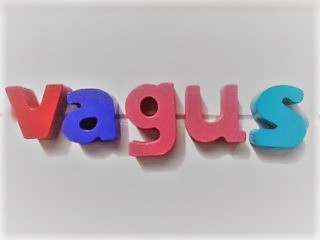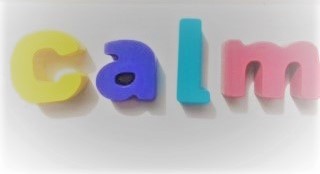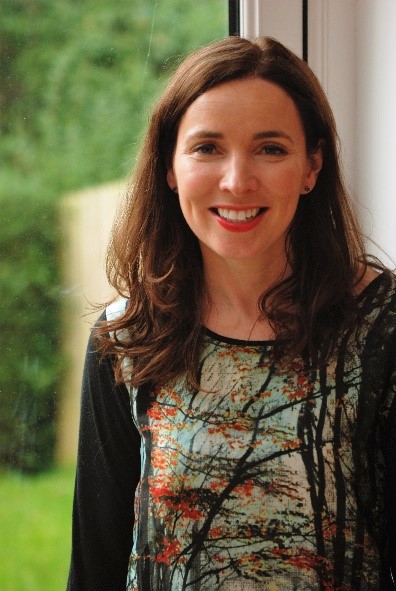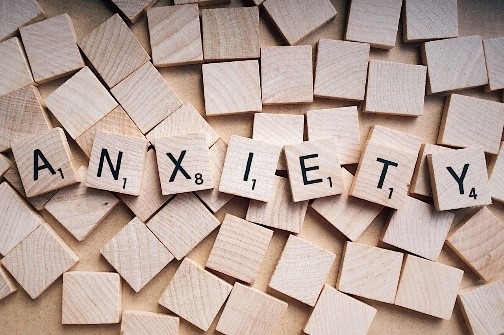Anxiety is often in the headlines these days. Most people feel stressed in our busy lives but around 1 in 10 people nowadays live daily with anxiety. Anxiety can stop you from living the life you deserve and hold you back from doing the things you want to. The following article is going to take you on an alphabet journey, to help you understand anxiety more and how to manage it better.

A is for anxiety which is created by a tiny part of your brain called the amygdala that is responsible for alerting us to danger. It causes your heart to start racing and to initiate the fear response in your body. It’s the same response you would get if you were greeted with an angry lion at your front door. Unfortunately your brain can’t tell the difference between a real threat like a lion and getting a work email.
B is for butterflies in your stomach. The Central nervous system (CNS) activates the stress response in your brain. This causes symptoms like butterflies in your stomach, rapid breathing, stomach distress, muscle tension and the sensation of fear and panic.
C is for challenge. People with anxiety can find it hard to focus. You can find simple tasks overwhelming, like choosing what to wear in the morning. To keep anxiety at bay, set yourself one achievable task a day like making your bed.
D is for, de-stress. If anxiety is affecting you every day and preventing you from enjoying life seek help from your GP or find a professional therapist to help you.
E is for “Everyone is better than me”. People with anxiety tend to critically compare themselves to others. Stop comparing yourself to others especially on social media. If that person on Instagram if making you feel inadequate, unfollow them or have a digital detox at certain times of the day.
F is for “For goodness sake pull yourself together!” Is this what people around you are telling you? Severe Anxiety is a serious condition and over 3 million people in the UK are affected by it according the most recent Psychiatric Morbidity survey. It isn’t just something you can shrug off. Acknowledge it and talk about it with friends or family you can trust.
G is for good times. Remember some good times in your life. A useful exercise is to record 3 good things that have happened during the day before you go to bed at night time.

H is for Happiness. When we are happy we produce a neurotransmitter called serotonin. Think of what things you enjoy and try and try and do one things every day to bring in some happiness into your life every day.
I is for “I can”. Positive self-talk can help. Find an affirmation you like and say it to yourself every day.
J is for, “Just pause………..” Take your time and breathe.
K is for kindness. Being kind to yourself. If you have a friend or loved one with anxiety ask them how you can help them best. Studies have shown that those who help others receive feel good chemicals in their brain as a reward and less anxiety.
L is for the limbic system and this forms part of a primitive part of our brain. The limbic system is responsible for creating the stress response in our bodies. Prolonged stress can cause damage to our cells.
M is for, “Maybe today will be different?”. Anxiety can come and go at different times of our lives. Tell yourself this is only temporary.
N is for is neuroplasticity. Positive changes can be made in our brain through repetition when we are relaxed. A hypnotherapy recording or a guided meditation can train your brain to enable your brain to relax.
O is for openess to change. Believing that change can happen means that you are wiring your brain for success.
P is for press the reset button. It’s OK start again today.
Q is for quiet time. Give yourself some quiet time every day if you can.
R is for relaxation. Anxiety can keep our minds on alert. To counteract this, introduce some relaxation into your day. This could be anything from listening to some music you enjoy, having a bath with scented candles or have an early night.
S is for stress. Chronic stress can be debilitating and have a harmful effect on your body and your mind. The stress hormones in the body cortisol and adrenaline can cause burn out if stress levels are sustained long term. Is there anything that you can let go of at work or at home?
T is for time out. Time for you is so important to give your brain some down time. Schedule some time in your diary for you during the week.

U is for unity. Seek unity from friends or family or someone else you trust.

V is for Vagus nerve. The vagus nerve runs all the way from the brain stem all the way down to the colon. If it is stimulated it can create anxiety. To help calm down the stress response in the body, breathing exercises can help.
W is for Why is this happening to me? Anxiety can creep up on the most confident of people. Please don’t feel alone it happens to everyone at different times.
X is for extra. Take a little extra time to find out what brings you happiness. Could it taking up a new hobby or finding some other way to allow your brain to relax?


Yes to calm
Y is for Yes. Say yes to calmness. What does calm look like to you? Find out what works for you whether it is attending a gym class or reading a book.
Z is for Zen. Find your inner peace. Become observant of moments in the day when you feel calm and relaxed and aim to create more of this.
This alphabet journey has given you a deeper understanding of how your brain responds to anxiety and this knowledge can help you make steps to manage it effectively. Use the A-Z to help you become a calmer and happier you.
Some people find it useful to journal their emotions but if feel you need some professional help there are lots of sources of help available. Find someone you feel you can trust and who is professionally qualified.

Judith Ward is an award-winning clinical hypnotherapist. She uses solution-focused brief therapy combined with hypnosis to help people become happier versions of themselves. She help people with anxiety, stress, depression, phobias, and sleep and is available for face to face consultations or via the Internet worldwide. She works from her clinic in Bangor, Northern Ireland. www.judithwardhypnotherapy.co.uk
Facebook: Click here
Instagram: Click here
Tags:
#anxiety #hypnotherapy #hypnosis #stress

